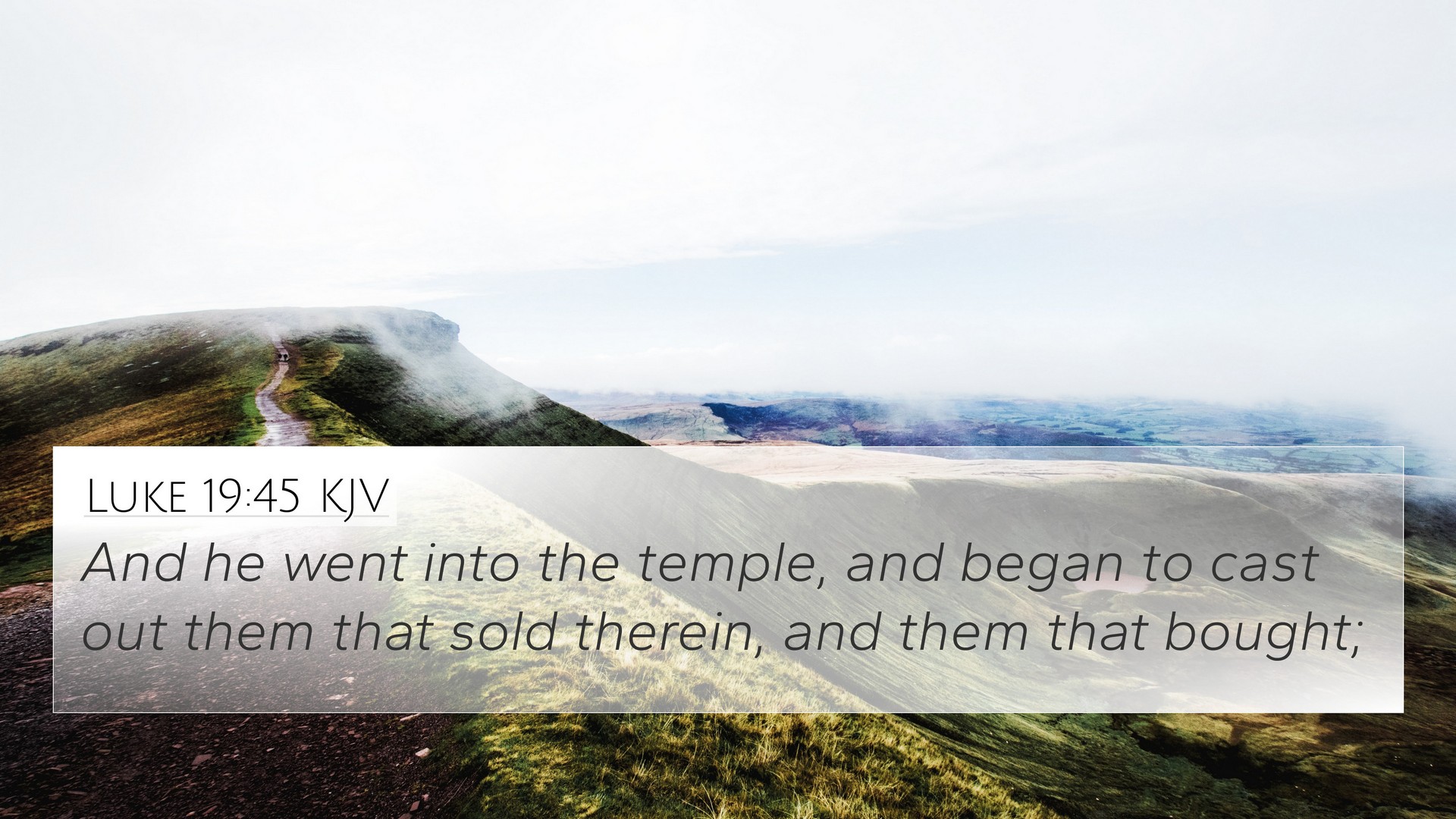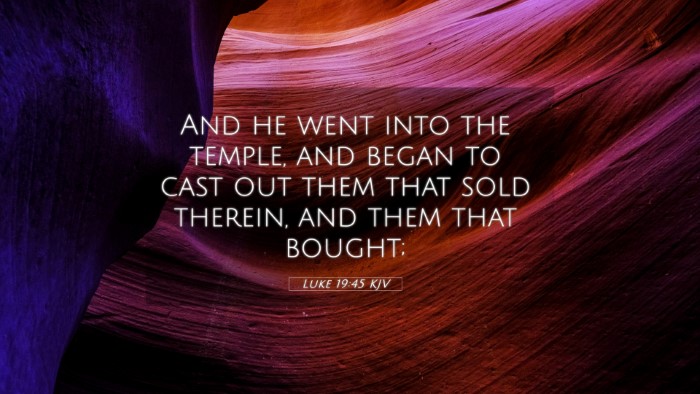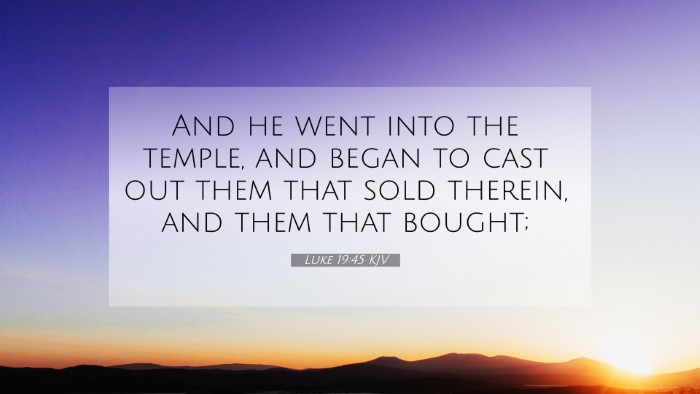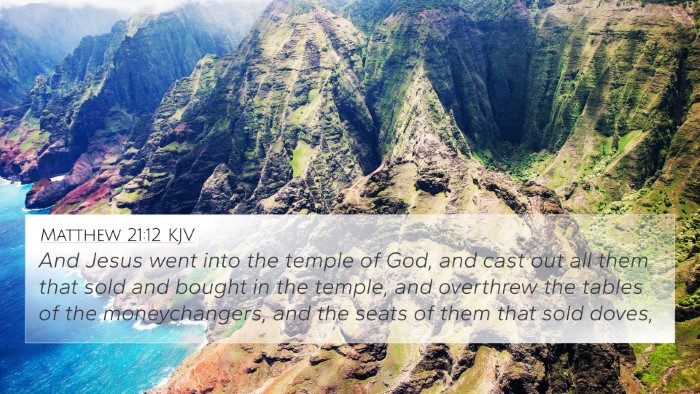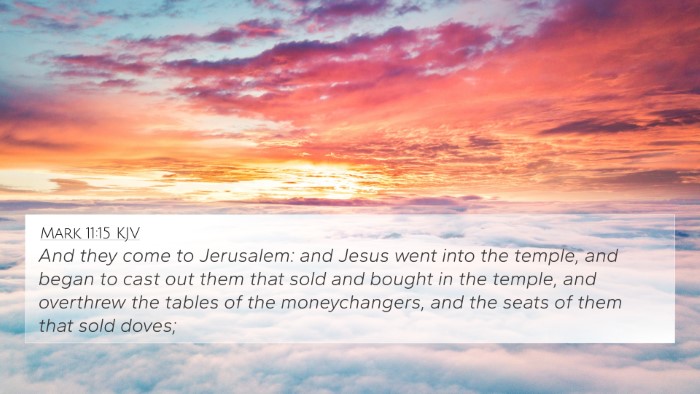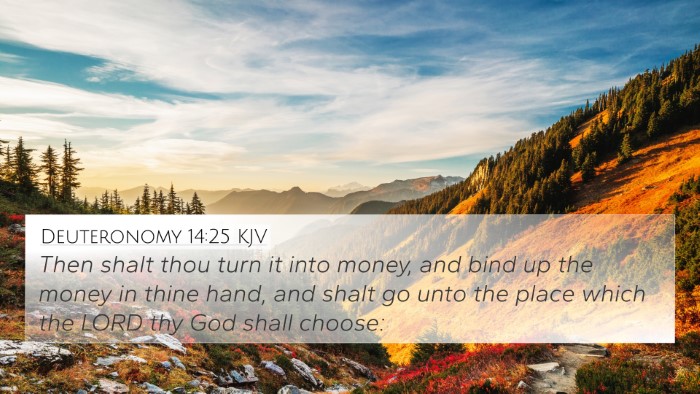Understanding Luke 19:45
Luke 19:45 states:
"And he went into the temple, and began to cast out them that sold therein, and them that bought;"
Meaning and Interpretation
This verse describes a significant moment in Jesus' ministry where He confronts the corruption within the Temple in Jerusalem. Various commentaries shed light on the implications of His actions.
Matthew Henry’s Commentary
Henry notes that the temple was meant to be a house of prayer, but instead had become a den of thieves. By driving out the merchants, Jesus emphasizes the importance of purity in worship and the sanctity of the sacred space.
Albert Barnes’ Notes
Barnes highlights that Jesus' actions were a fulfilled prophecy and a demonstration of His authority. The temple’s commercialization was an insult to God and perverted the true purpose of worship.
Adam Clarke’s Commentary
Clarke discusses the implications of Jesus’ cleansing of the temple, suggesting it was an act of judgment against the religious leaders of the time. His actions called for a spiritual renewal and a return to genuine worship.
Thematic Connections
This event connects with various themes in the Bible, illustrating Jesus’ role as a reformer, the need for temple purity, and the call to true discipleship. Below are some crucial connections:
- Matthew 21:12-13: Parallel account of Jesus cleansing the temple.
- Mark 11:15-17: Another Gospel account affirming the significance of this event.
- Isaiah 56:7: Prophecy declaring God’s house as a house of prayer.
- Jeremiah 7:11: Reference to the temple being a den of robbers.
- John 2:14-16: Jesus accuses merchants of turning the temple into a marketplace.
- 1 Corinthians 6:19-20: Our bodies as temples, underlining the importance of purity.
- Revelation 21:22: The ultimate purpose of the temple in God's eternal plan.
Cross-References and Insights
This verse invites a deeper exploration of themes concerning worship and purification. Here are some recommended methods for cross-referencing and studying this passage:
- Use a Bible concordance: Locate terms related to 'temple', 'worship', and 'purification'.
- Bible cross-reference guide: Find enhanced insights linking similar accounts in different Gospels.
- Comparative study of Gospel accounts: Examine how each Gospel writer presents this event.
- Tools for Bible cross-referencing: Utilize software or apps that facilitate inter-Biblical dialogue.
Conclusion
Luke 19:45 serves as a powerful reminder of the need for sincerity in worship and the importance of maintaining the sanctity of sacred spaces. By cross-referencing this verse with others, believers can better understand the holistic message of the Scriptures regarding worship and divine authority.
Engaging in a comparative Bible verse analysis helps uncover the layers of meaning present throughout the Biblical text. Through the links created by these verses, one can explore profound theological insights that resonate through both Old and New Testament teachings.
